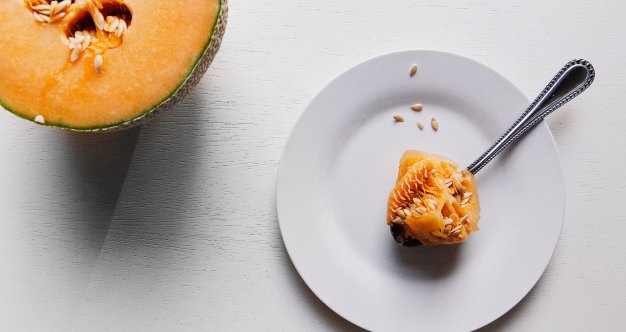New research suggests that upping your intake of vitamin A (think sweet potatoes, carrots, cantaloupe, apricots, squash, and sweet red peppers) could decrease your risk of getting diagnosed with the second-most common type of skin cancerby a pretty significant 17 percent. The research comes from a new study published in the respected Journal of the American Medical Association (JAMA) yesterday.
Importantly, the study didn’t say for sure whether vitamin A actually caused the decreased risk. It’s certainly possible that the people that were eating diets rich in vitamin A were also, for instance, drinking less alcohol or wearing more sunscreen. Regardless, a 17 percent risk decrease is significant, and it could be a sign that when it comes to skin cancer, carrots and cantaloupes are your friends.
Read MoreRELATED: Do The UV Lamps At Nail Salons Increase Risk Of Skin Cancer?
Because the study was an observational one, the researchers couldn't come to a conclusion as to whether the vitamin A actually caused the lower cancer risk, and if so, how or why it happened. Studies like thesewhich look at links between cancer risk and lifestyle factors like diet or exerciseare often a jumping-off point for further research. Indeed, as the next step, Dr. Eunyoung Cho, an associate professor of dermatology and epidemiology at Brown University and one of the authors on the new study, shared in a press release that she'd like to conduct a clinical trial as a next step, to confirm if vitamin A could actively prevent skin cancermeaning, potentially, that people could take supplements to decrease their risk.
RELATED: Cutting "Pro-Inflammatory" Foods From Your Diet Can Reduce Cancer Risk
When it Comes to Vitamin A, Fruits and Veggies Are Key
Vitamin A is generally found in two main types of foods: animal products, such as beef liver and cod, and then beta-carotene rich fruits and veggies, such as carrots, sweet potatoes, cantaloupe, pumpkin, mango, apricots. In this study, the researchers found that the lower cancer risk was associated with the plant-based vitamin A sources, not the animal product ones.
Dr. Cho noted that this was an important distinction, because the two sources of vitamin A have different effects on the body, and some of the potential side effects of having too much of the vitamin (such as nausea) are mainly associated with the vitamin A-rich animal productsnot the fruits and veggie.
The amount of vitamin A that was linked to the decreased cancer risk, according to the study's press release, was equivalent to about one medium baked sweet potato or two large carrots each day.
Squamous Cell Carcinoma
The type of skin cancer that the researchers looked at in relation to vitamin A intake was squamous cell carcinoma, which is the second most common type of skin cancer (about 20 percent of skin cancers are squamous cell carcinomas). Usually, these cancers develop in areas where the skin has been continuously exposed to the sun. If left untreated, the cancers can spread to deeper layers of the skin, and can ultimately metastasize to other parts of the body, making them much more difficult to treat.
RELATED: Choose the Right Sunscreen and Use it Often
Even though more research is needed to say whether eating more vitamin A will directly prevent squamous cell carcinoma, Dr. Cho said eating the plant-based foods that contain vitamin A is a good idea regardlessand this study should be seen as another reason to reach for the fruits and veggies.
"Our study provides another reason to eat lots of fruits and vegetables as part of a healthy diet,” Dr. Cho said. “Skin cancer, including squamous cell carcinoma, is hard to prevent, but this study suggests that eating a healthy diet rich in vitamin A may be a way to reduce your risk, in addition to wearing sunscreen and reducing sun exposure.”
Learn more about SurvivorNet's rigorous medical review process.

